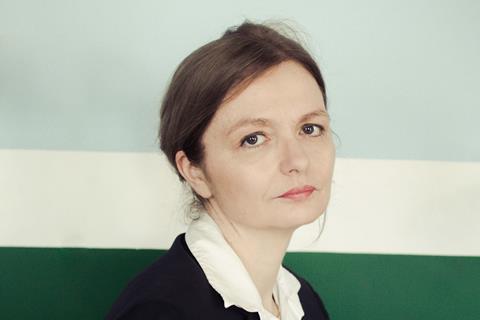
After months of speculation, the European Commission last month announced its plans for the future of Creative Europe, the cornerstone funding programme for the European film industry, as part of its proposals for the EU’s long-term budget for 2028-2034.
At first, there was a sense of relief. Even though Creative Europe is being merged with the EU’s Citizens, Equality, Rights and Values (CERV) programme, its replacement — AgoraEU — will be backed with a proposed €8.6bn ($10bn) budget over seven years. Of that, €3.2bn ($3.7bn) is earmarked for a newly designed Media+ strand, which will run from 2028-2034. This is more than double the €1.44bn ($1.6bn) budget of Creative Europe’s current Media programme, the key funding mechanism for the film sector.
So far, so good. Despite pressure on the EU to spend more on security and climate action, the Commission’s proposals for the AgoraEU programme signal that it remains keen to fund the cultural sector.
Yet many in the European film industry are concerned. After poring over the fine print of the AgoraEU programme, they have sounded alarm bells about the set-up of the new Media+ programme. Media+ may come with a €3.2bn ($3.7bn) budget, but its funding scope has significantly increased.
The original Media programme was set up in 1991 with the objective of helping films travel beyond their national borders in Europe. Historically, it has focused strongly on the distribution of film through initiatives such as Films On The Move and European Film Distribution. It also funds festivals, training, development and organisations such as Europa Cinemas and the European Film Academy. Over the years, its support has grown to encompass the audiovisual sector, including TV series and video games.
The new Media+ strand is a very different animal. The European Commission has set it two different objectives. First, it will support the audiovisual and video-game industries, including the film industry, “notably by enhancing [the] creation and cross-border distribution of European content and its access by citizens”.
Support for news media
But Media+ also has a second, brand-new objective: to support news media. At a time of rising concern about fake news and disinformation, the Commission is looking to shore up the struggling European news media sector, which has been so disrupted by digital giants as well as falling ad revenues and sales. Specifically, the Commission has called for Media+ to “contribute to a free, viable and diverse Union information ecosystem, notably by supporting free and independent journalism and news media, enhancing citizens’ access to trustworthy information and tackling disinformation.”
News organisations have naturally welcomed the move. “This is good news for professional journalism and reliable information, for the quality of our public debate and the resilience of our democracies and, in turn, for European citizens,” said Pierre Petillault, director general of France’s Alliance de la Presse d’Information Generale, in a LinkedIn post after the announcement.
Adding to the sense of concern, the Commission has not detailed how it intends to spend Media+’s proposed €3.2bn ($3.7bn) budget. For now, all that is known is that the money will be spent on both the audiovisual and news media strands of the programme — but not the size of each pot.
“It’s early in the day for us to properly assess what this will mean for the film and audiovisual sector,” says Laura Houlgatte, CEO of the International Union of Cinemas (UNIC). “At face value, you see a big increase in terms of budget, which is great. But we don’t know how much will be dedicated to the pure film and audiovisual sector.”

The Commission’s proposals for the AgoraEU programme will now enter a negotiation process between the European Parliament and the Council of the European Union, which represents the governments of EU member states. These negotiations are expected to begin this autumn and will continue throughout 2026-27.
Few think that the proposed €8.6bn ($10bn) package for AgoraEU will survive these negotiations intact. Some money might be moved to other priority areas, or the pot will be reduced at the behest of more frugal member states.
If there are cuts, many worry that the film and audiovisual sector will suffer rather than the news media within the Media+ programme. There’s a strong political appetite within the EU to support efforts to counter disinformation and fake news, notes Robert Heslop, secretary general of the International Federation of Film Distributors’ and Publishers’ Associations (FIAD). “FIAD’s concern is that when the negotiations go to the wire, the film and AV sector are at risk of losing support,” he comments.

Juliette Prissard, general delegate of France’s film and television producers association Eurocinema, says it represents a “major” moment for her members. “Audiovisual and culture do not seem to be at the forefront of the EU’s vision now,” she says. “It’s freedom of expression, democracy and the fight against illiberalism, and help for broadcasters, new media and journalists to support democracy in Europe.
”It’s a major shift with no ring-fence to protect our audiovisual production supports.”
She points out that, whereas the current Media programme contains dedicated support for independent producers, the new Media+ programme no longer has that provision. “That is not the case anymore. The reference to independence has vanished,” says Prissard. This means that broadcaster-owned producers will be able to apply. “For us, it is now a broadcaster fund.”
Competing with the US
For some, this fits with ongoing concerns that the European Commission prefers to increase the competitiveness of the audiovisual sector rather than reinforce cultural diversity in the EU. In particular, critics think the Commission wants to foster big European companies that can compete effectively with US giants, rather than independent small and medium-sized enterprises (SMEs).
Notably, non-EU companies will also be able to benefit from the Media+ programme, according to article 16 of the AgoraEU text. This presumably will allow foreign-owned European companies to access funding. For example, Germany’s Leonine Distribution — which is backed by US private equity fund KKR — was in 2022 ruled ineligible for Creative Europe funding by the European Court of Justice.
Others point to potential positives about the funding outcome. One exec, who prefers to remain anonymous, notes that AgoraEU sits within an overall European Competitiveness Fund. “This is good because it recognises the value of culture for Europe’s competitiveness — if culture was housed elsewhere, it might be worrying,” they say.
The same exec also identifies a potential “sweet spot” between news and audiovisual, particularly in areas like documentary. “More and more, news is presented in an audiovisual way, so there may be potential for synergy if the two industries are brought together.”
Looking ahead, it is likely that European audiovisual bodies will jointly present a common position for the upcoming negotiations about AgoraEU. It’s also likely that this will stress the role of the audiovisual industries in bolstering democracy and freedom of speech, and enhancing cultural diversity within the EU.
Alice Ormières, managing director of European sales agent lobbying group Europa International, says firmly: “There is no freedom of speech or freedom of the news if we do not foster the freedom of creation that we represent as the film industry.”
Adds Houlgatte: “All the work that we do to promote films and increase the circulation of films has its part to play when it comes to democracy, citizenship and values in Europe.”

























No comments yet